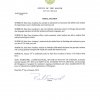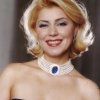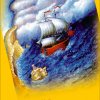The Mayor's proclamation also noted that Saint Sava Academy is "the only full-time elementary school in Chicago offering dual language education in both Serbian and Russian languages," "offers a safe community where students are able to express their culture and religious beliefs," and "sustains an Orthodox faith-based education that provides students a strong spiritual compass both inside and outside the classroom."
Leaders of Holy Resurrection Cathedral and Saint Sava Academy warmly welcomed the Mayor's proclamation.
"The Mayor's proclamation of St. Sava Academy Day is a very important and deserved recognition for our school, and an honor for our whole community, and I would like to thank our Academy Administration and Board of Trustees for their work which lead to this decision," said the Very Reverend Protopresbyter Darko Spasojevic, Cathedral Dean.
Marko Bojovic, Academy Principal, added: "I am truly grateful to Mayor Emanuel for proclaiming January 27th as 'St. Sava Academy Day' in this wonderful City of Chicago. I also thank our Cathedral clergy, Academy Board of Trustees, faculty and staff for working as one unified team in achieving the mission of St. Sava Academy and for meeting the needs of our students. Our students have yet another reason to be proud of their school."
Reverend Dr. Vasilije Vranic, priest in charge of the Cathedral's educational programs, noted the historical significance of the proclamation.
"Sts. Sebastian of Jackson, Mardarije of Libertyville, and Nikolaj of Zicha organized the parishes of the Serbian Orthodox Church...
Looking at the example of St. Sava, the first archbishop of Serbia, they recognized the indispensable role that Orthodox-based education, rooted in our culture and traditions, ought to have in the life of our communities on this continent. This proclamation confirms and attests that indeed our efforts in perpetuating the legacy of our great spiritual ancestors through our parochial school and other educational programs are bearing a noteworthy fruit. We are grateful to Mayor Emanuel for his support," Fr. Vasilije Vranic said.
Founded in 2001, St. Sava Academy is the dual language parochial school at Holy Resurrection Serbian Orthodox Cathedral offering a dynamic PreK-8 education.






